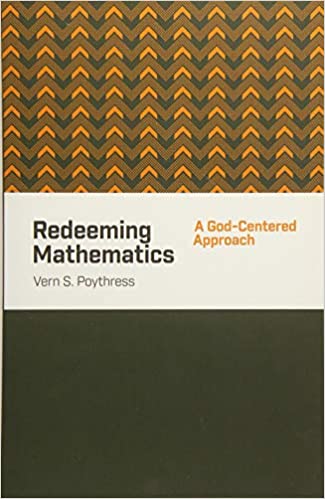A Brief Book Summary from Books At a Glance
by Kevin Walker
Introduction
In Redeeming Mathematics, Poythress sets out to describe the fundamentals of mathematics and their relationship to the God of Christianity. Though many materialists and naturalists consider mathematics to be a purely secular matter, in reality, mathematics provides us with a special understanding of the qualities and attributes of God. Arithmetic and higher mathematics parallel the traditional understanding of God’s nature to a startling degree, and their transcendent and intangible logic clues us into the ultimate rationality of God’s creation.
While we must be cautious about how much we try to comprehend about God through numbers, examining the various fields and sub-disciplines of mathematics will allow us to understand God’s rational nature in greater detail and gain an appreciation for the order and harmony of the cosmos.
Table of Contents
Introduction
Chapter 1: God and Mathematics
Chapter 2: The One and the Many
Chapter 3: Naturalism
Chapter 4: The Nature of Numbers
Chapter 5: Human Capabilities
Chapter 6: Necessity and Contingency
Chapter 7: Addition
Chapter 8: The Idea of What Is Next
Chapter 9: Deriving Arithmetic From Succession
Chapter 10: Multiplication
Chapter 11: Symmetries
Chapter 12: Sets
Chapter 13: Division and Fractions
Chapter 14: Subtraction and Negative Numbers
Chapter 15: Irrational Numbers
Chapter 16: Imaginary Numbers
Chapter 17: Infinity
Chapter 18: Space and Geometry
Chapter 19: Higher Mathematics
Summary
Chapter 1: God and Mathematics
The equation 2 + 2 = 4 has a kind of undeniable veracity to it. It is just true – it always has been and, we suppose, always will be. We don’t feel the need to go and test this on every single object in the universe for the purposes of verification. We just know it to be a sort of absolute truth. The question is: is there any good reason to think this?
Interestingly, 2 + 2 = 4 has many qualities in common with the classical traits of the Christian God. 2 + 2 = 4 is, like God, both “omnipresent” and “eternal,” in that it is true everywhere and always. It seems to be transcendent of the cosmos in its universal applicability and its atemporality, the quality of being totally unaffected by different periods of time or separate instantiations. At the same time, like God, 2 + 2 = 4 is “immanent” and temporal, operating within time through practical application of mathematics to the natural world (for example, in the counting of apples and the laws of physics). Additionally, it is “immutable,” “invisible,” and “immaterial.” It is unchanging, intangible, and always unseen.
2 + 2 = 4 appears to have unlimited applicability in the universe, so is in a sense “infinite” like God, as well. In another sense, it is also “good,” as we have a sort of moral imperative to believe in the truth. Like God, its elegance and power can be startlingly beautiful. It also possesses a sense of judgement, in that its consequences are an inviolable result of its actions and nature – there is order. It is Trinitarian as well, as it involves, in the words of Dorothy Sayers, “Idea, Energy, and Power.” It is the “idea” of the Father, the “energy” and activity of the Son, and the “power” of the Holy Spirit. . . .
[To continue reading this summary, please see below....]The remainder of this article is premium content. Become a member to continue reading.
Already have an account? Sign In
